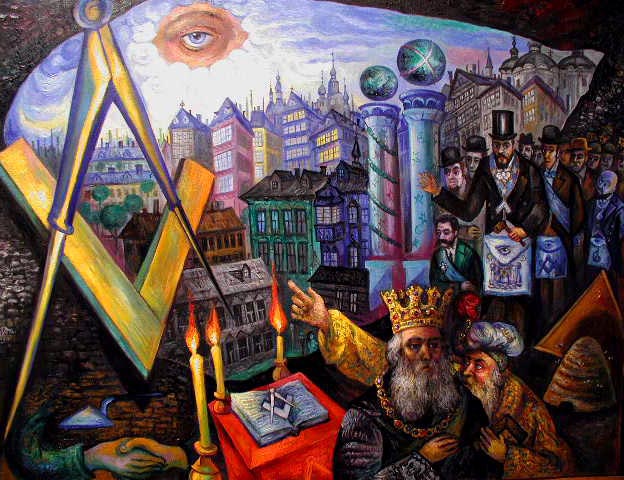“The assembling of the council is to be regulated according to the feasts marked in the calendar of the Order. (Nach dem calendario Illuminatorum an
p. 569
[paragraph continues] Ordens festen).” But this was soon found to be insufficient, and Weishaupt exhorts his Areopagites to meet in their senate every post-day, and at the hour of the delivery of the letters.
Short as this sketch of a Code for the Areopagites may seem, it clearly denotes the essence of their functions, and shows how they are to act as a central point for the whole Sect. A grand question was still undecided when Spartacus gave these laws to the council; which was nothing less than, Whether Spartacus was to preserve a legislative and sovereign power over the Members of this Council, similar to that authority which they were to exercise over the rest of the Order?—Great Conspirators will seldom brook control even by their fellows. They will be equal among themselves and in their dens of conspiracy. Spartacus-Weishaupt was naturally of a despotic disposition. His Areopagites for a long time complained of it. 16 But he contended, that as founder, he had the indefeasible right of giving to the association those laws and regulations which he judged necesssary for its perpetuation. He soon, indeed, repented of the decision he had given against himself in favour of his Senate, “That the plurality of votes should dictate the eternal laws of the Sect” (Lex semper valitura) 17 Notwithstanding these complaints of the Areopagites, however, he speedily found means of re-instating himself in that authority, the privation of which only thwarted his artful conceptions, by subjecting them to the opinions of persons less consummate in the conspiring arts than their master. He sometimes submits to the justification of his conduct; but that is the very moment in which the reader should observe him artfully reclaiming all the rights and pretending to the exercise of unlimited despotism, though his cant appears to reject the very idea of it. Addressing his opponents in the shape of his pupils, he recalls to their minds the monstrous services he has rendered them in their youth, as so many benefactions of the most tender friendship, and asks them “of what they can in their consciences complain?” “When (says he) did you ever observe harshness or haughtiness in my conduct, with respect to you? When did I ever assume the tone of Master? Is it not rather with an excess of confidence, of goodness, of openess with my friends, that I may be reproached?”—When in this manner Weishaupt has captivated his Areopagites, he comes to the point: “Read then (he says) my letters over and over again. You will therein perceive that the grand object of our Society is not a thing of small consequence for me; that I know how to view it, and treat it also, in the most serious manner; that I have always aimed at the establishment of order, submission, discipline, and activity, as the sole means that can lead you to the grand object. In undertaking a work of such vast importance, was I not obliged by prayers, exhortations, and advice, to maintain and stimulate the ardour of my first, my dearest companions, on whom every thing depended?—If I wish to keep the supreme direction in my own hands, hear my reasons, which are most certainly of great weight:
“In the first place, I must necesssarily know with whom I have to deal, and must be ascertained of the fidelity of our people; and, to effectuate this, I am not to receive reports from a sixth hand, or perhaps one still more
p. 570
remote, on the execution of my plans, which have been approved of by the Elect of our Mysteries. . . In the next place, am I not the Constructor of this grand Edifice? Is there no respect due to me?. . . . When my system shall be completed, will it not be necessary for me to inspect the whole, and keep every man at his station? It is a great and radical defect in a society, where a Superior is dependent on the Inferiors, as it has been attempted to render me.

Moe is the founder of GnosticWarrior.com. He is a father, husband, author, martial arts black belt, and an expert in Gnosticism, the occult, and esotericism.








